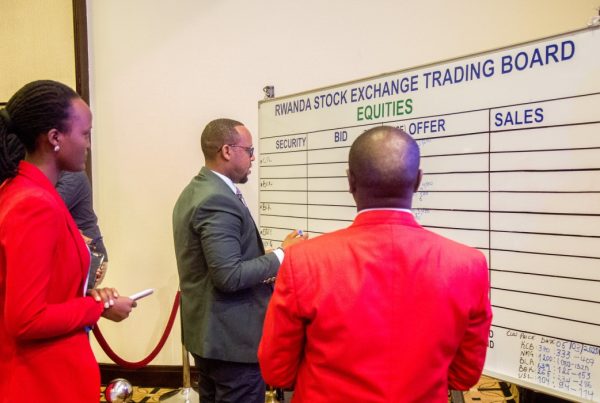Rwanda’s capital market advanced in 2025 on the back of sweeping legal reforms, investor education, and digital oversight, as the country deepens its ambition to become a regional financial hub.
The year marked a turning point for regulatory modernization, said Thapelo Tsheole, Chief Executive Officer of the Capital Market Authority.
“These reforms are more than regulatory checklists; they build trust, encourage innovation, and help Rwanda’s market keep pace with global trends,” he said in an interview.
A cornerstone of the reform agenda was the passage of a revised Central Securities Depository law, replacing the 2010 framework. The updated statute tightens settlement systems, clarifies collateral rules, and adds safeguards against counterparty risk, improvements aimed at boosting efficiency and resilience in trading.
In parallel, the regulator finalized rules for Collective Investment Schemes, broadening access for retail investors to professionally managed funds. It also introduced a draft law on virtual assets, setting the stage for oversight of digital products in one of Africa’s fastest-growing economies. A broader legal review is underway to align Rwanda’s regime with international standards set by the International Organization of Securities Commissions.
Beyond the regulatory front, CMA intensified outreach. Investor education drives reached communities across all provinces and Kigali, equipping first-time participants and young investors with knowledge of financial products and their rights. “Investor protection begins with financial literacy,” Tsheole said, adding that education is key to building long-term confidence.
The regulator also strengthened supply-side capacity through its joint “Investment Clinic” with the Rwanda Stock Exchange. The initiative provided small and medium-sized enterprises with tailored advice on corporate governance, disclosure, and capital-raising, helping a pipeline of firms prepare for potential listings.
Looking forward, Tsheole said Rwanda is preparing to roll out a new wave of instruments including Real Estate Investment Trusts, Exchange-Traded Funds, and sustainability-linked bonds. Such products are expected to deepen liquidity, diversify investment choices, and cement the market’s role as a driver of long-term finance.





